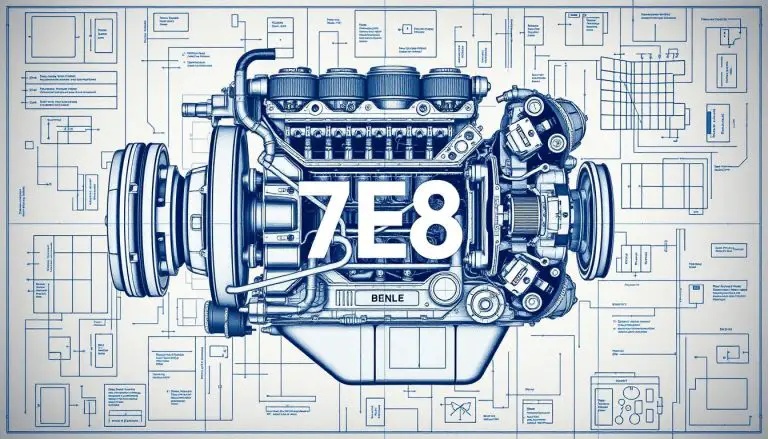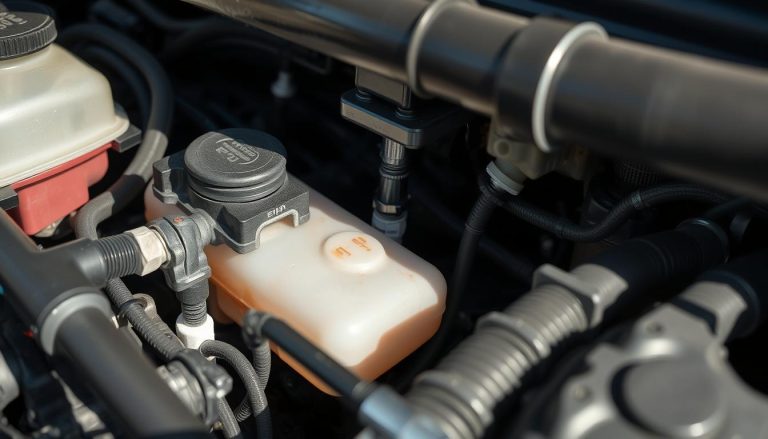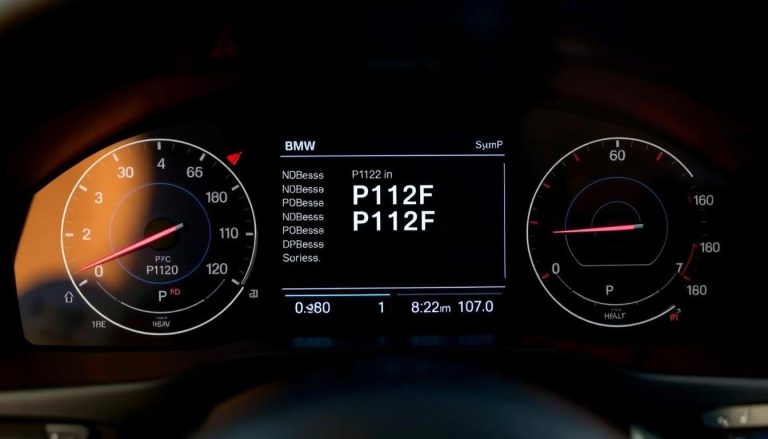If you’ve ever faced the dreaded check engine light, among the myriad of trouble codes that could pop up, one that often raises eyebrows is the P0361 code. This specific code points to an ignition coil issue—specifically a malfunction in the K primary/secondary circuit.
In this guide, we’ll dive deep into what the P0361 code really means. We’ll explore its causes, symptoms, diagnostic steps, and repair solutions so you can tackle any potential problems with confidence.
What does the P0361 code mean?
The P0361 code is a specific diagnostic trouble code (DTC) that indicates an issue with the ignition coil K’s primary or secondary circuit. This means there’s a problem in either the connection or functionality of the ignition coil responsible for firing one of your engine’s cylinders.
When this code is triggered, it signals that the vehicle’s onboard computer has detected irregularities in voltage levels associated with that particular ignition coil. This can lead to misfires and poor engine performance if left unaddressed.
Understanding what this code signifies helps you grasp how crucial the ignition system’s health is for overall vehicle operation. It also paves the way for recognizing symptoms and potential fixes down the line. Ignition coils are vital components, so any hiccup here deserves immediate attention to maintain optimal driving conditions.
What parts can be affected by P0361 code ?
The P0361 code primarily indicates an issue with the Ignition Coil K, specifically its primary and secondary circuit. This part plays a crucial role in generating the spark needed for combustion.
If this ignition coil is malfunctioning, it can lead to poor engine performance. Other related components may also be affected. The ignition control module could experience stress due to inconsistent signals from the faulty coil.
Additionally, wiring harnesses connected to the ignition system might suffer damage or corrosion over time. This can create further complications in diagnosing and repairing the issue.
In some cases, issues with fuel injectors can arise as they rely on consistent firing from the coils for optimal operation. Thus, addressing a P0361 code quickly helps maintain overall vehicle health and functionality.
What are the possible causes of a P0361 code?
The P0361 code can stem from various underlying issues. One common cause is a faulty ignition coil itself. If the coil isn’t functioning properly, it disrupts the primary and secondary circuits.
Wiring problems are another frequent culprit. Frayed wires or poor connections can lead to inconsistent signals, triggering this diagnostic code.
Additionally, a malfunctioning engine control module (ECM) may misinterpret data regarding the ignition system’s performance. The ECM relies on accurate feedback to ensure everything runs smoothly.
Corroded connectors can also contribute to this problem. When electrical contacts become corroded, they impede proper communication between components.
Excessive heat or vibration in certain environments might damage components over time. This wear and tear could ultimately manifest as a P0361 code that needs addressing promptly.
What are the common symptoms of a P0361 code?
When the P0361 code triggers, certain symptoms can manifest in your vehicle. One of the most noticeable signs is engine misfire. This occurs when the ignition coil fails to deliver spark effectively.
You may also experience reduced engine performance. Acceleration might feel sluggish, and overall power could diminish while driving.
Another common symptom is difficulty starting your vehicle. A faulty ignition coil can lead to inconsistent firing, making it tough for the engine to crank up.
Check engine lights often accompany this code too. The illumination serves as a warning that something’s amiss under the hood.
You might notice unusual vibrations or rough idling when your car is stopped. These sensations indicate an imbalance caused by improper combustion due to irregular sparks from a malfunctioning ignition system.
What are the diagnostic steps for a P0361 code?
To diagnose a P0361 code, start with a reliable OBD-II scanner. This tool retrieves the specific trouble codes stored in your vehicle’s computer.
Next, inspect the ignition coil and its wiring for any visible damage or corrosion. Look closely at connections that might be loose or broken.
After that, test the ignition coil’s resistance using a multimeter. Compare your findings against manufacturer specifications to determine if it’s functioning properly.
Additionally, check related components like spark plugs and fuel injectors for faults. These can sometimes cause similar symptoms and codes.
Reset the trouble codes and take the car for a test drive to see if the P0361 reappears. Monitoring how your vehicle performs during this step is crucial in confirming any issues present before repairs are made.
How serious Is the P0361 Code? Can I continue driving with the P0361 code?
The P0361 code indicates a malfunction in the ignition coil circuit, specifically for Ignition Coil K. This issue can lead to misfires and poor engine performance.
Driving with this code is not advisable. You might experience rough idling or stalling, which can be dangerous on the road. The vehicle’s overall efficiency may decline, leading to increased fuel consumption.
Continuing to operate your car could further damage other components of the ignition system or even affect the catalytic converter over time. It’s crucial to address any symptoms promptly rather than ignore them.
While some drivers may attempt short trips with this code illuminated, it’s better to get it checked out as soon as possible. Intervening early can save you from more extensive repairs later on. Prioritizing your safety and that of others should always come first when dealing with diagnostic trouble codes like P0361.
What are the repair solutions for a P0361 – Ignition Coil K Primary/Secondary Circuit Malfunction ?
To address the P0361 code, start by inspecting the ignition coil itself. Look for any visible signs of damage or corrosion.
Next, check all associated wiring and connectors. Loose connections can lead to circuit malfunctions, so ensure everything is secure and intact.
If those elements seem fine, you may need to test the ignition coil’s resistance using a multimeter. This will help determine if it’s functioning within manufacturer specifications.
In some cases, replacing the ignition coil is necessary. Be sure to use high-quality parts to avoid future issues.
Don’t forget about potential issues with engine control modules (ECM). A malfunctioning ECM might also trigger this trouble code.
After repairs are made, clear the code using an OBD-II scanner and take your vehicle for a test drive to see if it returns.
How long and How much does it cost to diagnose and repair a P0361 code?
The cost and time involved in diagnosing the P0361 code can vary significantly. Typically, a professional diagnosis may take about one to two hours. Labor rates depend on your location and the shop’s pricing structure.
Expect to pay anywhere from $100 to $150 for this diagnostic service. Mechanics will use specialized tools to pinpoint the issue accurately.
If repairs are necessary, costs can increase substantially depending on what is needed. Replacing an ignition coil generally ranges between $200 and $500, including parts and labor.
Keep in mind that if additional components or wiring issues are found during diagnostics, this could add more time and expense. Always ask for a detailed estimate before proceeding with any repair work; transparency helps avoid surprises later on.
How can I avoid a P0361 code?
Regular maintenance is key to avoiding a P0361 code. Keep up with your vehicle’s service schedule, focusing on the ignition system.
Inspecting spark plugs and ignition coils periodically can help catch issues early. Replace worn-out components before they lead to more significant problems.
Use quality fuel that meets your car’s specifications. Poor-quality fuel can contribute to engine misfires and stress the ignition system.
Additionally, pay attention to any warning lights or unusual sounds while driving. Address these signs promptly rather than waiting for them to escalate into serious malfunctions.
Consider professional diagnostics if you notice changes in performance. A proactive approach can save time and money in the long run by preventing potential trouble associated with the P0361 code.
What happens if you ignore a P0361 code?
Ignoring a P0361 code can lead to significant engine performance issues. The ignition coil plays a crucial role in generating the spark necessary for combustion. If it’s malfunctioning, you may experience rough idling or stalling.
Continued driving with this issue can also cause more extensive damage. Other components, such as fuel injectors and sensors, might suffer from increased strain due to improper firing of the cylinders.
Fuel efficiency may decrease as well. A faulty ignition system often leads to incomplete combustion, resulting in wasted fuel and higher emissions.
Long-term neglect could trigger additional trouble codes too. This complicates repairs and increases overall maintenance costs down the line.
Addressing the P0361 code promptly is essential for maintaining vehicle health and ensuring safety on the road. Ignoring it invites further complications that are best avoided altogether.
Is the P0361 code specific to certain car makes or models?
The P0361 code can occur in a variety of vehicles, but it is not confined to specific makes or models. It often appears in cars equipped with advanced ignition systems that utilize multiple coils.
Manufacturers like Ford, Chevy, and Honda may experience this issue more frequently due to their engine designs. However, many brands are susceptible depending on how the ignition system is configured.
That said, the severity and occurrence of the P0361 code might vary by model year and engine type. Understanding your vehicle’s unique characteristics can help you identify potential problems early on.
It’s also worth noting that while some codes share similarities across different manufacturers, diagnostic procedures may differ based on the car’s brand. Always refer to your vehicle’s service manual for precise guidance tailored to your model.
What other codes may be related to P0361?
When dealing with the P0361 code, it’s essential to be aware of other related codes that could indicate issues in the ignition system. Often, when one component fails, it can trigger multiple trouble codes.
For instance, you might encounter P0350 through P0369 codes. These pertain specifically to ignition coil malfunctions and generally relate to different cylinders or circuits within the ignition system. Codes like P0300 represent random misfires and could also manifest alongside a P0361 if there’s an underlying problem affecting engine performance.
It’s also not uncommon for vehicle owners to see codes such as P0340 (Camshaft Position Sensor Circuit) or P0420 (Catalytic Converter Efficiency Below Threshold) when experiencing issues linked to the ignition circuit. Any failure in these areas can affect how efficiently your car operates and may lead to further complications down the line.
Being proactive about diagnosing any associated trouble codes will help maintain your vehicle’s health while avoiding more significant repairs in the future. Always consult a professional mechanic if you’re unsure about interpreting these codes or tackling repairs on your own. Proper diagnosis is key for effective resolution of issues surrounding a fault like code P0361.


